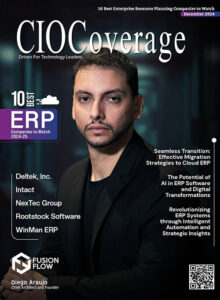 In May 2020, Deloitte mapped out 4 potential scenarios for the global travel and hospitality industry to get to the “next normal.” Each scenario evaluated known unknowns such as disease severity, government collaboration, healthcare response, economic consequences, and social cohesion.
In May 2020, Deloitte mapped out 4 potential scenarios for the global travel and hospitality industry to get to the “next normal.” Each scenario evaluated known unknowns such as disease severity, government collaboration, healthcare response, economic consequences, and social cohesion.
Its conclusion arrived at several overarching themes, which would need to be addressed in order to rebuild consumer confidence and reengage the travel and hospitality industry at large.
The following analysis is grounded in the central themes of Deloitte’s assessment with a focus on how blockchain and distributed ledger technologies (DLTs) can reduce friction and increase transparency, ultimately improving trust in a trustless environment.
Blockchain: Building Trust by Trustless Consensus
In order to balance business needs with consumer apprehension, it is recommended that companies communicate how they are making travel safe to build lasting trust. Rebuilding trust requires breaking down silos and collaborating with all parties to set appropriate expectations. In other words, first build consensus; then transparently communicate improved processes to sync business and consumer expectations.
Bitcoin has value because the consensus has been built, hence most people are familiar with bitcoin but not the technology behind it. Blockchain technology is what makes bitcoin valuable. At its core, blockchain technology helps untrusted parties build consensus to execute trustless transactions. Bitcoin is an open source software that functions as a shared, decentralized public ledger to issue, record, and verify transactions via consensus. Bitcoin is valuable because untrusted parties can execute peer-to-peer trustless transactions without needing to pay expensive, trusted intermediaries to settle payments using custody and escrow.
Much like bitcoin creates monetary value, blockchain technologies can create functional value for travel and hospitality businesses to get everybody back on the same page faster and at a lower cost.
Moving Forward: Enhanced Supply Chains, Contact Tracing, and Blockchain-Based Payments
In the face of such rapid change, an organized and forward-looking approach to recovery is warranted. Fortunately, blockchain and DLT platforms are already being used to enhance supply chain audibility, improve contact tracing safety, and speed up money transfers. Here are some of the leading examples.
IBM’s Blockchain Food Trust and Walmart’s partnership with Hyperledger Fabric have cut costs for businesses tracing food provenance by removing middlemen, while reducing the time needed to pinpoint food loss or contamination from days to seconds. When tracing the supply chains of mangoes in the US and pork products in China, Walmart was able to reduce their supply chain verification process from 7 days to 2.2 seconds. These supply chain enhancements provide valuable safety assurances and incredible efficiencies for suppliers, distributors and consumers facing food shortage in the face of COVID-19.
Restructuring legacy platforms to use blockchain technologies can guarantee that communications sent on-chain are original, accurate and unforgeable, so nothing gets lost in translation. This is particularly pertinent to coordinating healthcare responses across travel, tourism and hospitality where crossing borders and meeting in-person is commonplace.
Current contact tracing solutions, such as France’s StopCOVID app, suffer from a top-down centralized approach, which risks private patient information becoming compromised. Decentralized solutions like Algorand’s contact tracing dApp, iReport COVID, let anybody anonymously report symptoms (or lack thereof) while protecting their personal privacy. Integrating anonymous iReport data with airlines and bookings aggregators like Expedia or OpenTable can empower customers to make informed decisions about their risks of becoming infected without sacrificing privacy.
This is just one of many potential technological innovations that can help travel and hospitality get to the “next normal.” Another promising opportunity on the road to recovery is blockchain-based digital payments. Across the travel and hospitality industry, money must be sent in advance to reserve flights, venues, and tours. Existing options for sending payment include bank wire, ACH, or travelers check. Unfortunately, these legacy payment options are slow, costly, and unique to each destination.
Stablecoins such as USD Coin (USDC) and JPM Coin enable blockchain payments that are pegged 1:1 with the U.S. Dollar. USDC and JPM Coin are 100% collateralized by stable assets managed by leading institutions. Payments are KYC / AML verified and sent peer-to-peer, reducing lag. This price stability and digitally native delivery offers businesses near-instant transaction settlement with lower transaction costs than current fees and interbank exchange rates. So, seconds after sending a payment, businesses can verify that the transaction was successfully executed on-chain and that the recipient has verifiable access to the funds. This bilateral transparency can help restore public trust and make travel and hospitality more efficient moving forward.
Conclusion
It can be expected that travel and hospitality will take a long time to adjust to the quickly shifting landscape left in the wake of COVID-19. Fortunately, blockchain and DLT platforms offer innovative solutions to restructure the cost, safety, and performance of travel and hospitality programs. Using this model, planning for the “next normal” can extend utility into a post-pandemic world.















